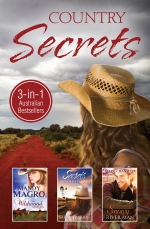 It’s 1978. A fourteen-year-old girl goes missing from a suburb on Sydney’s Northern Beaches. A few days later, her body is found in bushland in Palm Beach. She’s been strangled with her own scarf and there’s evidence of sexual activity.
It’s 1978. A fourteen-year-old girl goes missing from a suburb on Sydney’s Northern Beaches. A few days later, her body is found in bushland in Palm Beach. She’s been strangled with her own scarf and there’s evidence of sexual activity.
Under suspicion are those last to see her alive, including the girl’s cousin Matt and his mates. Suspicion lingers, despite the police being unable to bring a case – until a second girl is found dead at Kings Cross some time later, killed in a near-identical fashion. The murders are attributed to an unknown “serial killer”, dubbed the “Sydney Strangler”, even though no other murdered girls are found.
The two dead girls, local “chick” Angie and country runaway Kelly, aren’t the only “lost girls” in Wendy James’ latest novel, The Lost Girls. There’s Jane, Angie’s younger cousin, and Kelly’s younger sister Kath and her mother. There’s also Angie’s mum Carol and her aunt Barbara. Each is “lost” in some way, coping – or not coping – with the impact of those violent deaths.
The Lost Girls explores this impact thirty years later, when a mysterious journalist, Erin Fury, appears. Ostensibly she’s doing research for a radio program, aiming to explore the impact of such deaths on the families of murdered women. Her first interview is with cousin Jane, now middle-aged and married to childhood sweetheart Rob, with a teenaged daughter. Jane, reassessing what she has done with her life, is eager to revisit the time when her beloved cousin was killed. It’s as if she might answer some pressing personal questions by reviewing that time through adult eyes.
Jane isn’t the only one Erin targets. She also interviews Jane’s brother, one-time suspect Matt; Jane and Matt’s policeman father Doug, now a nursing home resident suffering from dementia; their mother, Barbara; and Jane’s husband, Rob. Each has a take on past events and, as Erin inveigles herself into their lives, long-held, sometimes painful, secrets are revealed.
One aspect of The Lost Girls I particularly admire is its evocation of place and time. I grew up on the Northern Beaches around this time, and many of the specific details James gives – from the local milk bar with its pin-ball machine, to the type of lollies the characters buy – bring back vivid memories. Another aspect is James’ ear for dialogue. So many of the characters sound like people I know or have known. I also admire her skill as a storyteller, her ability to create suspense and her seemingly effortless transitions of time, point of view and tense.
Chiefly I’m interested in the way James uses a sensationalistic premise, that of serial killing, in order to explore facets of human nature. Unlike many contemporary crime and thriller writers, she doesn’t offer violence as entertainment; nor does she place it somewhere “out there”, beyond the experience of the reader. Rather, she shows how individuals respond to such traumatic events, and the effects of the choices they make as a consequence. Along the way, she suggests how such choices shape us as human beings; how we come to terms with suffering, loss, mistakes and betrayal; how we love or try to love, despite disappointment; and the meanings we make of our own and others’ lives.
Crime author Angela Savage has remarked that the reader of James’ novels doesn’t have to suspend disbelief. In general, I’d agree. However, initially while reading The Lost Girls, I found the journalist Erin’s character unconvincing, particularly in terms of motivation. She seemed more of a device than a psychologically realised character. Then I began to see her as one of the “lost girls” of the title and she made more sense to me. And it’s for that reason that I’d disagree with the criticism both Savage and Michelle McLaren make of the Epilogue, that it’s somehow a mis-step or unnecessary. For me it resolves the central motif of the story.
With The Lost Girls, James consolidates her place alongside Honey Brown and newcomer Dawn Barker among Australia’s foremost proponents of an emerging genre of psychological suspense, which some have dubbed “suburban noir”. I’m eager to find other Australian authors who might fit into this category. Do you know of any?
~
This review forms part of my contribution to the Australian Women Writers Challenge and the Aussie Author Challenge. A review copy was kindly supplied to me by the publisher via Netgalley. The Lost Girls has attracted a lot of attention from AWW reviewers including: Shellyrae at Book’d Out, Carol at Reading Writing and Riesling, Bree at All the Books I Can Read, Jess at The Never Ending Bookshelf, and Bernadette at Fair Dinkum Crime.
Author: Wendy James
Published: 26/02/2014




angelasavage
/ June 20, 2014Elizabeth, Anna George’s debut novel What Came Before looks like it might fit the ‘suburban noir’ genre. I’ll get back to you to confirm once I’ve read it. Nice review, BTW.
LikeLike
Lizzy Chandler/Elizabeth Lhuede
/ June 20, 2014Thanks, Angela. I just looked up What Came Before. Sounds excellent.
LikeLike
Dawn Barker
/ June 20, 2014Great review – I’m looking forward to reading this one. And thanks for including me alongside Wendy and Honey Brown! Suburban Noir – I like it! Caroline Overington writes similar fiction too, and Liane Moriarty’s The Husband’s Secret has similar themes…
Dawn
LikeLike
Lizzy Chandler/Elizabeth Lhuede
/ June 20, 2014Thanks for dropping by, Dawn, and you’re very welcome. I forgot about Caroline Overington. She probably does fit this category. And thanks for reminding me about Liane Moriarty. Of her books, I’ve only read The Hypnotist’s Love Story and I enjoyed that. I must hunt up The Husband’s Secret. Suburban Noir does have a ring to it, doesn’t it?
LikeLike
whisperinggums
/ June 20, 2014Good review Elizabeth … I must read Wendy James one day. I don’t read a lot of crime as you know but I feel I should read at least one by James. Suburban noir … I join others in saying I like it!
LikeLike
Lizzy Chandler/Elizabeth Lhuede
/ June 20, 2014Thank you! I think The Steele Diaries might be one of hers you’d enjoy.
LikeLike
whisperinggums
/ June 20, 2014Thanks Lizzy (or whoever you are!). I’ll remember that.
LikeLike
bernadetteinoz
/ June 21, 2014Agree that James is a great author of the sub genre but am almost vehemently opposed to calling it suburban noir. For me neither of those words are applicable…Honey Brown’s stuff for example often takes place a long way from the suburbs (so do several of James’novels for that matter) and the word itself can have a demeaning tone when used by some people. And none of this writing fits within the traditional meaning of noir which basically holds that you have a central character whose case/cause is hopeless and things will be virtually the same at the end as they were at the beginning for this person although the best writers (and film makers) often lull the reader/viewer into believing this time it might be different…there might be a happy ending. It is one of my bugbears that this word gets tacked onto anything else these days by marketing types who clearly don’t understand the term. My least favourite is everything coming out of Scandinavia being labelled Nordic Noir – even cosy crime writers like Camilla Lackberg.
Sorry for the rant when I should be commenting on your review which I liked very much. You’ve teased out my issue with the Erin charachter very intelligently…I wasn’t nearly so articulate to myself when thinking about it but I do agree wholeheartedly.
LikeLike
Lizzy Chandler/Elizabeth Lhuede
/ June 21, 2014Bernadette, I love your rants, especially as they are always well informed. I’m happy to bow to your expertise in this matter (and thanks for clearing up what ‘noir’ traditionally stands for), though I do find he term catchy (as the marketing departments no doubt intend!). Have you reviewed the book and discussed Erin? If so, I missed it and must hunt it up. Thanks for taking the time to comment. It’s always appreciated.
LikeLike
Kirsten Krauth
/ June 23, 2014I’ve always been a fan of Wendy James so great to hear this review. My aunties and grandparents grew up/lived Northern Beaches way so I’m keen to get a sense of this location, as I often thought there was something unsettling about the place, beneath the slick surface. Looking forward to reading it. Love this notion of ‘suburban noir’.
LikeLike
Lizzy Chandler/Elizabeth Lhuede
/ June 23, 2014That’s an interesting impression about the setting, Kirsten (and perceptive, in my view). I look forward to hearing what you think of the book.
LikeLike